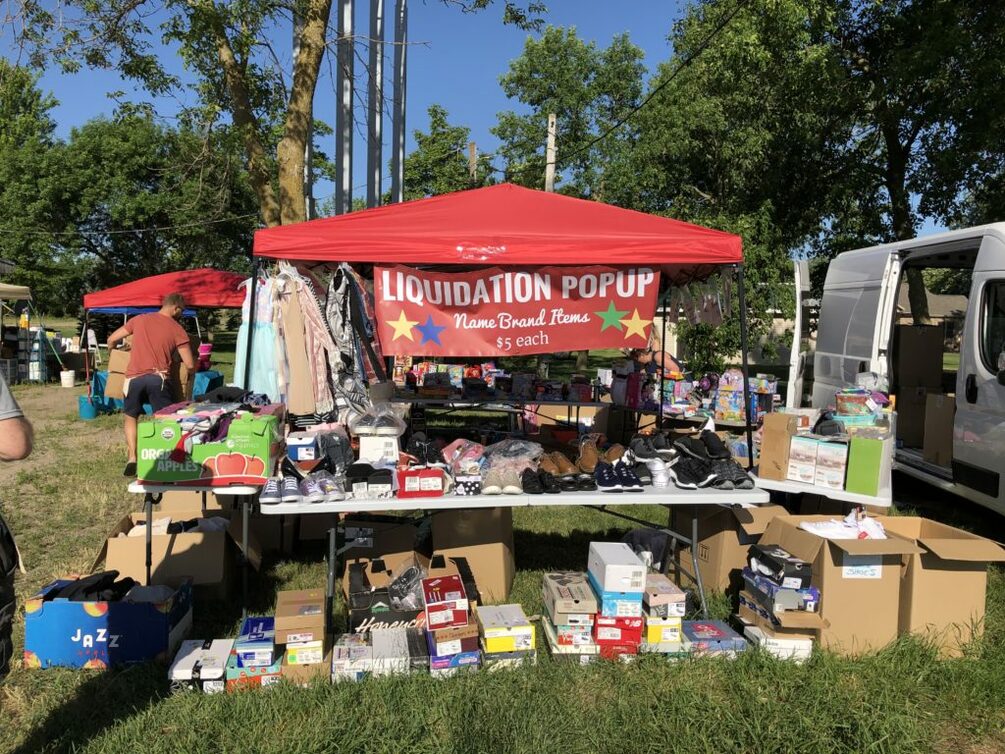
Did you know that some investors are earning up to 36% annual interest on their money without ever stepping foot in a stock market? Welcome to the world of tax lien investing, a lesser-known but potentially lucrative way to grow your wealth. I’ve been researching and investing in tax liens for years, and I’m here to share my insights on how you can make money with tax liens.
Contents
- Understanding Tax Liens: The Foundation of Your Investment
- Step 1: Research Your State’s Tax Lien Laws
- Step 2: Understand the Auction Process
- Step 3: Do Your Due Diligence on Properties
- Step 4: Determine Your Investment Budget
- Step 5: Attend the Auction and Bid Wisely
- Step 6: Manage Your Investment
- Step 7: Collect Your Returns or Initiate Foreclosure
- Potential Pitfalls to Avoid
- Real-Life Success Story
- Conclusion: Is Tax Lien Investing Right for You?
- Additional Resources
Understanding Tax Liens: The Foundation of Your Investment
Before we dive into the how-to, let’s get clear on what tax liens are. When property owners fail to pay their taxes, counties need a way to recoup that lost revenue. Enter tax lien certificates. These are legal claims against properties that have delinquent taxes. As an investor, you can purchase these certificates, essentially paying the property owner’s tax bill in exchange for the right to collect that money back with interest.
Now, you might be thinking, “Why would I want to pay someone else’s taxes?” Well, here’s where it gets interesting. Depending on the state, you could earn interest rates as high as 36% annually on your investment. That’s a return that would make even the savviest stock market guru do a double-take.
Step 1: Research Your State’s Tax Lien Laws
Not all states allow tax lien investing, so your first step is to check if it’s even an option where you live. Currently, only about half of U.S. counties sell tax lien certificates. Each state has its own rules and procedures, so you’ll need to do some homework. For example, in California, the interest rate is fixed at 16%, while in Arizona, it can go up to 16% through a reverse auction system.
Pro Tip: Start by contacting your county treasurer’s office or visiting their website. They should have information on whether tax lien sales are conducted in your area.
Step 2: Understand the Auction Process
Most tax liens are sold at auctions, which can be physical events or online bidding processes. These auctions typically happen once a year, so timing is crucial. The format can vary:
- Some auctions have investors bid down the interest rate, with the lowest bidder winning the lien.
- Others have investors bid up a premium above the lien amount.
I remember my first auction – it was nerve-wracking but exhilarating. The key is to go in prepared with a clear strategy and maximum bid in mind.
Step 3: Do Your Due Diligence on Properties
This is where the real work begins. Not all tax liens are created equal, and you don’t want to end up with a dud. Before bidding on any lien, research the property thoroughly:
- Check the property’s value and condition
- Look into any other liens or encumbrances on the property
- Assess the neighborhood and local real estate market
Remember, if the property owner doesn’t pay, you could end up owning the property. Make sure it’s something you’d be willing to take on.
Step 4: Determine Your Investment Budget
One of the beauties of tax lien investing is that you can start with as little as a few hundred dollars. This allows for great diversification, spreading your risk across multiple liens. However, be prepared for the possibility of foreclosure. If you do end up taking ownership of a property, you’ll need funds for potential repairs, legal fees, and other back taxes.
Step 5: Attend the Auction and Bid Wisely
When auction day arrives, stick to your strategy. It’s easy to get caught up in the excitement and overbid. Remember, the goal is to make money, not just win the lien. In reverse auctions, where you bid down the interest rate, know your bottom line – the lowest rate at which the investment still makes sense for you.
Step 6: Manage Your Investment
Congratulations! You’ve won some tax liens. Now what? Well, now you wait. The property owner has a redemption period (usually 2-3 years) to pay back the taxes plus interest. During this time:
- Keep meticulous records of your investments
- Stay informed about redemption deadlines
- Be prepared for early redemptions, which can impact your expected returns
Step 7: Collect Your Returns or Initiate Foreclosure
Most of the time, property owners will redeem their taxes. When this happens, you’ll receive your initial investment back plus the interest. It’s a nice payday for essentially being a patient lender.
However, if the redemption period expires without payment, you have the option to foreclose on the property. This is where things can get complicated and potentially very profitable – or risky. Before initiating foreclosure:
- Reassess the property’s value
- Calculate all additional costs (legal fees, repairs, other liens)
- Decide if taking ownership is worth it
I’ve seen investors make significant profits from foreclosures, but I’ve also seen them get burned by unforeseen issues with properties. Proceed with caution.
Potential Pitfalls to Avoid
While tax lien investing can be profitable, it’s not without risks:
- Inadequate research: Never bid on a property you haven’t thoroughly investigated.
- Overbidding: In the heat of an auction, it’s easy to bid too high and eat into your profits.
- Ignoring other liens: Some properties have multiple liens, which can complicate foreclosure.
- Forgetting about ongoing costs: If you foreclose, you’re responsible for property taxes going forward.
Real-Life Success Story
Let me share a quick story from my own experience. A few years back, I purchased a tax lien for $5,000 on a property in a developing area. The interest rate was 18%. The owner redeemed the lien after 14 months, netting me a tidy $750 in interest. It wasn’t life-changing money, but it was a solid return for a relatively low-risk investment.
Conclusion: Is Tax Lien Investing Right for You?
Tax lien investing can be a profitable addition to your investment portfolio, but it’s not a get-rich-quick scheme. It requires careful research, patience, and a willingness to navigate complex legal processes. However, for those willing to put in the work, the potential returns can be substantial.
Remember, success in tax lien investing requires thorough research and understanding of local regulations. It’s not for everyone, but for the right investor, it can be a powerful tool for wealth building.
As with any investment, start small, learn the ropes, and scale up as you gain experience. Who knows? You might just find yourself with a new, lucrative hobby that puts extra cash in your pocket.
Additional Resources
To dive deeper into how to make money with tax liens, check out these resources:
- Your county treasurer’s website for local auction information
- Online forums and communities dedicated to tax lien investing
- Books on the subject (search for highly-rated options on online bookstores)
- Local real estate investment groups, which often discuss alternative investments like tax liens
Happy investing, and may your liens be profitable!
Featured Image Credit: Nick Youngson CC BY-SA 3.0 Pix4free




